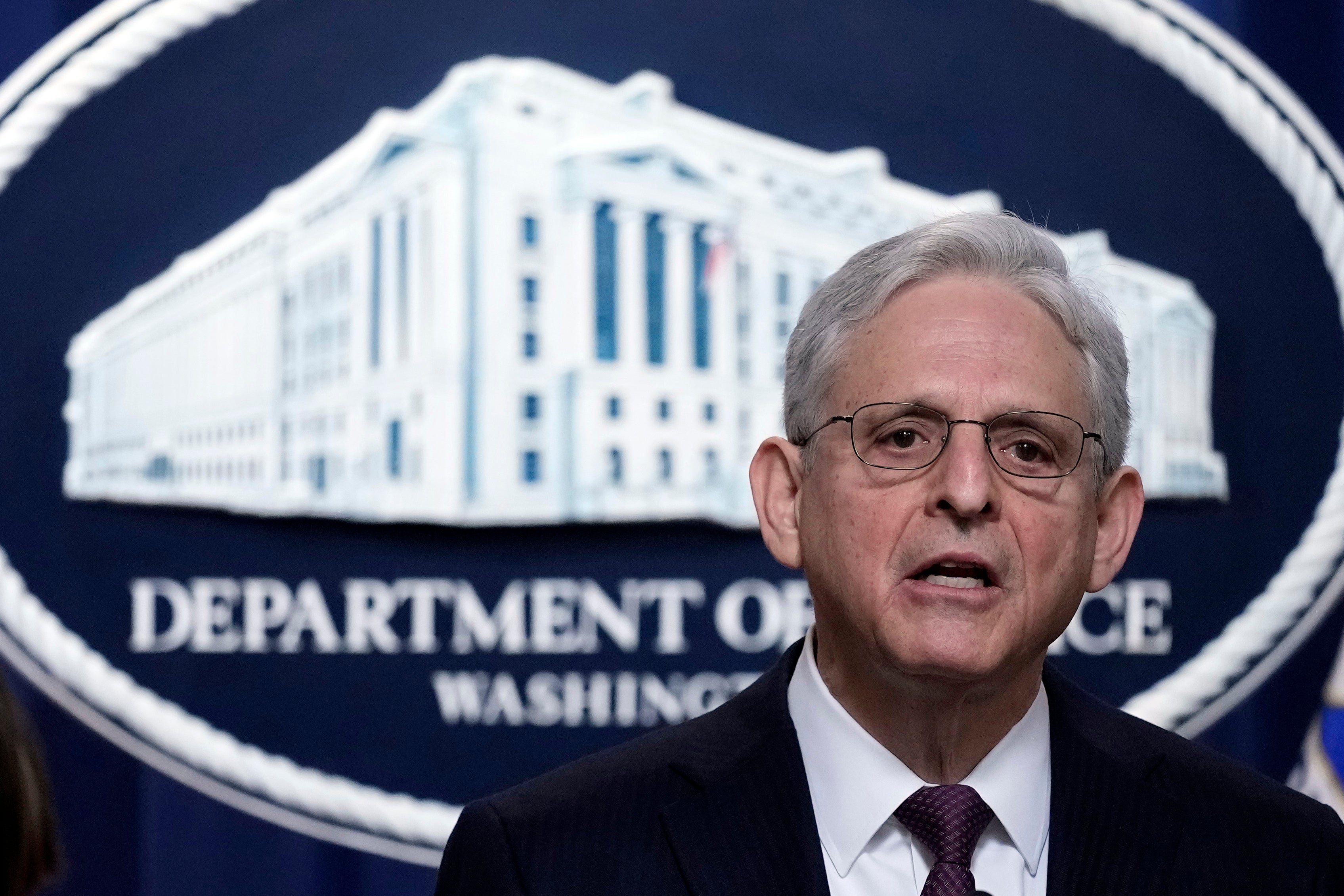Top assassin for Sinaloa drug cartel extradited to US to face charges, Justice Department says
The U.S. Justice Department says a top assassin for the Sinaloa drug cartel who was captured by Mexican authorities last fall has been extradited to the U.S. to face drug, gun and witness retaliation charges

Your support helps us to tell the story
From reproductive rights to climate change to Big Tech, The Independent is on the ground when the story is developing. Whether it's investigating the financials of Elon Musk's pro-Trump PAC or producing our latest documentary, 'The A Word', which shines a light on the American women fighting for reproductive rights, we know how important it is to parse out the facts from the messaging.
At such a critical moment in US history, we need reporters on the ground. Your donation allows us to keep sending journalists to speak to both sides of the story.
The Independent is trusted by Americans across the entire political spectrum. And unlike many other quality news outlets, we choose not to lock Americans out of our reporting and analysis with paywalls. We believe quality journalism should be available to everyone, paid for by those who can afford it.
Your support makes all the difference.A top assassin for the Sinaloa drug cartel who was arrested by Mexican authorities last fall has been extradited to the U.S. to face drug, gun and witness retaliation charges, the Justice Department said Saturday.
Néstor Isidro Pérez Salas, also known as “El Nini,” is a leader and commander of a group that provided security for the sons of imprisoned drug lord Joaquín “El Chapo” Guzmán, and also helped in their drug business, federal investigators said. The sons lead a faction known as the little Chapos, or “Chapitos,” that has been identified as one of the main exporters of the deadly synthetic opioid fentanyl to the U.S.
Fentanyl is blamed for about 70,000 overdose deaths per year in the United States.
“We allege El Nini was one of the Sinaloa Cartel’s lead sicarios, or assassins, and was responsible for the murder, torture, and kidnapping of rivals and witnesses who threatened the cartel’s criminal drug trafficking enterprise,” U.S. Attorney General Merrick Garland said in a news release Saturday.
Court records did not list an attorney for Pérez Salas who might comment on his behalf.
The Justice Department last year announced a slew of charges against cartel leaders, and the U.S. Drug Enforcement Administration posted a $3 million reward for the capture of Pérez Salas, 31. He was captured at a walled property in the Sinaloa state capital of Culiacan last November.
In a written statement, President Joe Biden thanked Mexican President Andrés Manuel López Obrador for extraditing Pérez Salas.
“Our governments will continue to work together to attack the fentanyl and synthetic drug epidemic that is killing so many people in our homelands and globally, and to bring to justice the criminals and organizations producing, smuggling, and selling these lethal poisons in both of our countries,” Biden said.
The nickname Nini is apparently a reference to a Mexican slang saying “neither nor,” used to describe youths who neither work nor study.
At the time of his arrest, Mike Vigil, former head of international operations for the U.S Drug Enforcement Administration, called him “a complete psychopath.”
Pérez Salas commanded a security team known as the Ninis, “a particularly violent group of security personnel for the Chapitos,” according to an indictment unsealed last year in New York. The Ninis “received military-style training in multiple areas of combat, including urban warfare, special weapons and tactics, and sniper proficiency.”
Pérez Salas participated in the torture of a Mexican federal agent in 2017, authorities said. He and others allegedly tortured the man for two hours, inserting a corkscrew into his muscles, ripping it out and placing hot chiles in the wounds.
According to the indictment, the Ninis carried out gruesome acts of violence.
The Ninis would take captured rivals to ranches owned by the Chapitos for execution, with some victims fed — dead or alive — to tigers the Chapitos raised as pets, the indictment said.